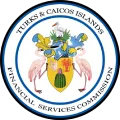
Typologies studies by the Financial Action Task Force, (FATF), an intergovernmental body, have identified a number of instances throughout the world in which the mechanism of fundraising i.e. the collection of resources from donors and its redistribution for charitable purposes has been used to provide a cover for the financing of terror.
Often the abuse of non-profit organisations (NPOs) occurred without the knowledge of the donors or even members of the management and staff of the organisation itself due to impropriety by employees and/or managers diverting funding away from the legitimate beneficiaries.
Donors to non-profit organisations may expect that the organisation to which they are contributing is well managed and has in place effective controls and oversight. Experience in the Turks and Caicos Islands indicates that the likelihood of a non-profit organisation falling victim to crime ranging from petty misappropriation of funds to the financing of terror is relatively slim.
However despite the relatively low risk of occurrence if such an event did take place the effect on that particular non-profit organisation, and its beneficiaries could be catastrophic. Indeed the impact of one proven case involving a non-profit organisation is potentially significant for public trust and confidence in the organisation and the sector as a whole.
The Turks and Caicos Islands Government is committed to meeting international standards in the fight against money laundering and combating the financing of terrorism. It is important for the international reputation of the Turks and Caicos Islands that the country does not fall behind in its compliance with evolving international standards.
The Non-Profit Organisation Regulations 2014 address the guiding principles recommended by the FATF. Such principles include financial transparency, accountability, and a Know Your Beneficiary and associated NPOs approach.
As the designated supervisory authority, the Financial Services Commission is required to maintain a Register of all non-profit organisations. A summary of the role of the NPO Supervisor is provided below. Please refer to Regulation 4 of the NPO Regulations 2014 for full details.
The application to register addresses the establishment of the Register of NPOs and is in two parts. The first being information relevant to the NPO itself to establish an early understanding of the vulnerability to the risks which they may face. The second section deals with identifying the “owners” and/or decision making individuals.
Should any NPO require assistance in completing the application forms please refer to the Compliance Unit at the Turks and Caicos Islands Financial Services Commission. Email: aml_supervision@tcifsc.tc and copied to the Head of Compliance tsmith@tcifsc.tc.
6. (1) Subject to sub-regulation (2), a non-profit organisation shall be registered in the NPO Register if it is –
Regulation 6 (2) speaks to those conditions which must be met to allow the NPO Supervisor to issue a certificate of exemption.
A $150 fee must accompany an application for a certificate of exemption.
Information held on the NPO Register.
Regulation 5 (2) provides full details of the information to be held on the NPO Register.
A paper version together with all attachments must be submitted by hand to the Commission Offices in Providenciales or Grand Turk.
The application must be accompanied by payment for the one time registration fee of $150.00. Cheques are payable to the Financial Services Commission. Payment may also be made by VISA or MasterCard at the Commission Offices.
An advance electronic copy of the application form may be submitted to aml_supervision@tcifsc.tc copied to tsmith@tcifsc.tc.
If considered necessary, more complete information may be provided using an additional copy of the relevant page suitably cross referenced to the main registration form.


